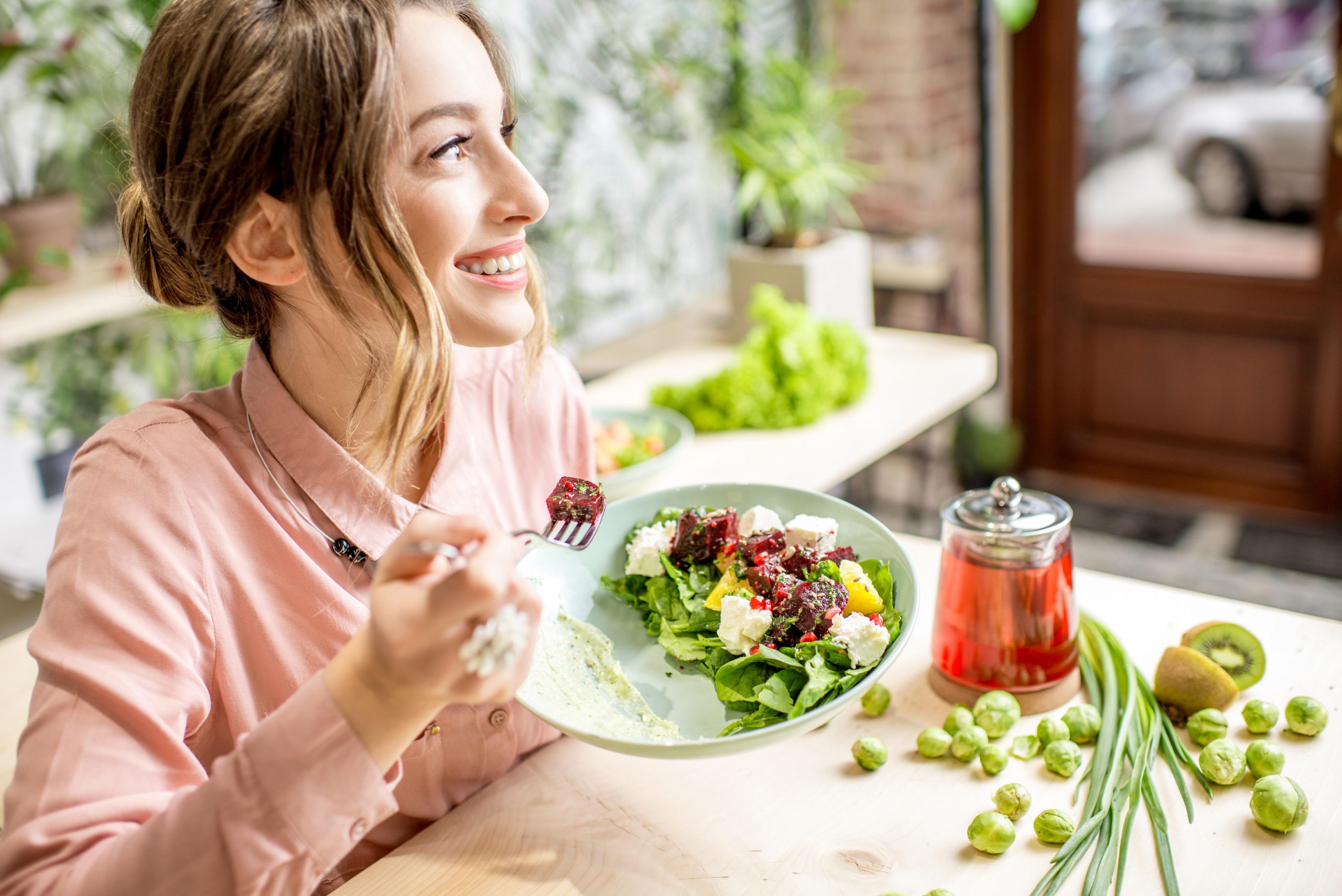Why we should all be aiming for 30 fruit and veg a week
Getting your 7-a-day is still key. But ensuring they’re varied will give your health a real boost!

Parenting advice, hot topics, best buys and family finance tips delivered straight to your inbox.
You are now subscribed
Your newsletter sign-up was successful
Getting your 7-a-day is still key. But ensuring they’re varied will give your health a real boost.
That’s the new advice from experts, who have found that eating 30 different fruit and veg across one week can help with gut health, boosting our microbiome; the plethora of bacteria inside us that’s said to have a huge impact on our health.
In a study, people who ate 30 different types of plant each week had more diverse microbiomes*. That might seem like a tall order – until you read our experts’ ways to make it a lot easier...
1) Berries for your gut
Blueberries are a superfood, rich in antioxidants** and prebiotics which contribute to healthy gut bacteria. Add to porridge instead of sugar, snack on frozen ones as a healthy treat, or add them to your favorite smoothie. Not only are these berries packed full of nutrients, but they are also low calorie fruits, making them perfect for a variety of different calorie-based diets.
‘Frozen berries warmed gently with thick yogurt on top makes a scrumptious dessert,’ says Heather Rosa, dean of the institute for optimum nutrition. Make sure you go for different berries, too. Raspberries can help beat constipation, while gooseberries are rich in antioxidants and fiber.
2) Crisp up that kale
The leafy veg is packed full of fiber and antioxidants. ‘Roast in the oven on a high heat with olive oil, sea salt, and pepper,’ says Abigail.
3) Freeze flavour
The freezer is your secret weapon when it comes to your 30-a-week. Keep a stash of frozen spinach – which has been shown to have the same effect as a probiotic – and ginger to add to stews, advises Heather.
Parenting advice, hot topics, best buys and family finance tips delivered straight to your inbox.
4) Blend it all up
Making soups is an easy way to get more varied veg in your diet. You don’t need a fancy blender; you can just blend soup in a pan with a hand blender. You can often pack in three or four different vegetables, try courgette, red pepper and roasted cauliflower with added ginger (which can help reduce gas production as well as stimulating hydrochloric acid to help digestion of proteins). Or, try roasting veg like squash or sweet potato first, with garlic.
5) Spiralize and grate
‘If you’re making a stir fry, substitute half the noodles for sprialised courgette. Blanch it for a few minutes, then drain. Grate cauliflower into rice dishes. If you make egg fried rice, cook half and add cauliflower instead,’ says Anna mapson, nutritionist at Goodness Me Nutrition. ‘Cauliflower and courgette contain fibre that helps regular bowel movements and may prevent constipation.’
6) Be wary of fruit juice
‘It has less fibre than a piece of fruit itself,’ says Anna. Instead, make a fruit salad with tropical fruits. ‘Pineapple contains bromelain, which is a protein-digesting enzyme. This can assist with the digestion of protein-rich foods, allowing the absorption of amino acids more readily, while kiwis contain an enzyme called actindin which enhances digestion,’ adds Jenny.
7) Fresh and frugal
Supermarkets often have seasonal veg in the reduced section says jenny, nutritionist at viridian. ‘Farmers’ markets are fabulous too- they have unsual species of vegetables as well as seasonal veg.’
8) Choose purple
‘Fruit and vegetables that are deep purple/red are naturally high in antioxidants known as oligomeric proanthocyanidins (OPCs). Antioxidants play an important role in preventing free radical damage to our cells,’ says Jenny.
9) Make your own salad bar
‘Cut up salad and veg and present it in different containers, so you can choose what you want,’ says Abigail. ‘Choose a range of veggies such as asparagus, garlic and beetroot, which provides prebiotics that help healthy gut bacteria to thrive.’
10) Be accountable
Put a piece of paper on your fridge with five colours written on it – red, orange, blue, purple, yellow and green. Tick them o when you include a fruit or veg of that colour in your meals.
11) Reduce waste
If a banana is going black, peel and freeze it. Then it’ll be perfect for a smoothie!
12) Prep like a boss
‘Meal prepping can work wonders to get you to that 30 total,’ says Jenny. ‘Fill a roasting tray with veg, then portion it between fridge and freezer.’ You could put some on a potato, or re-heat on pasta. ‘Artichokes are particularly high in fibre, so roasting them can help improve our friendly gut bacteria. Artichoke has demonstrated liver-supporting e ects and enhances the breakdown of fats. Studies have highlighted that broccoli intake may reduce gut inflammation as well as improve the integrity of our gastrointestinal lining.’